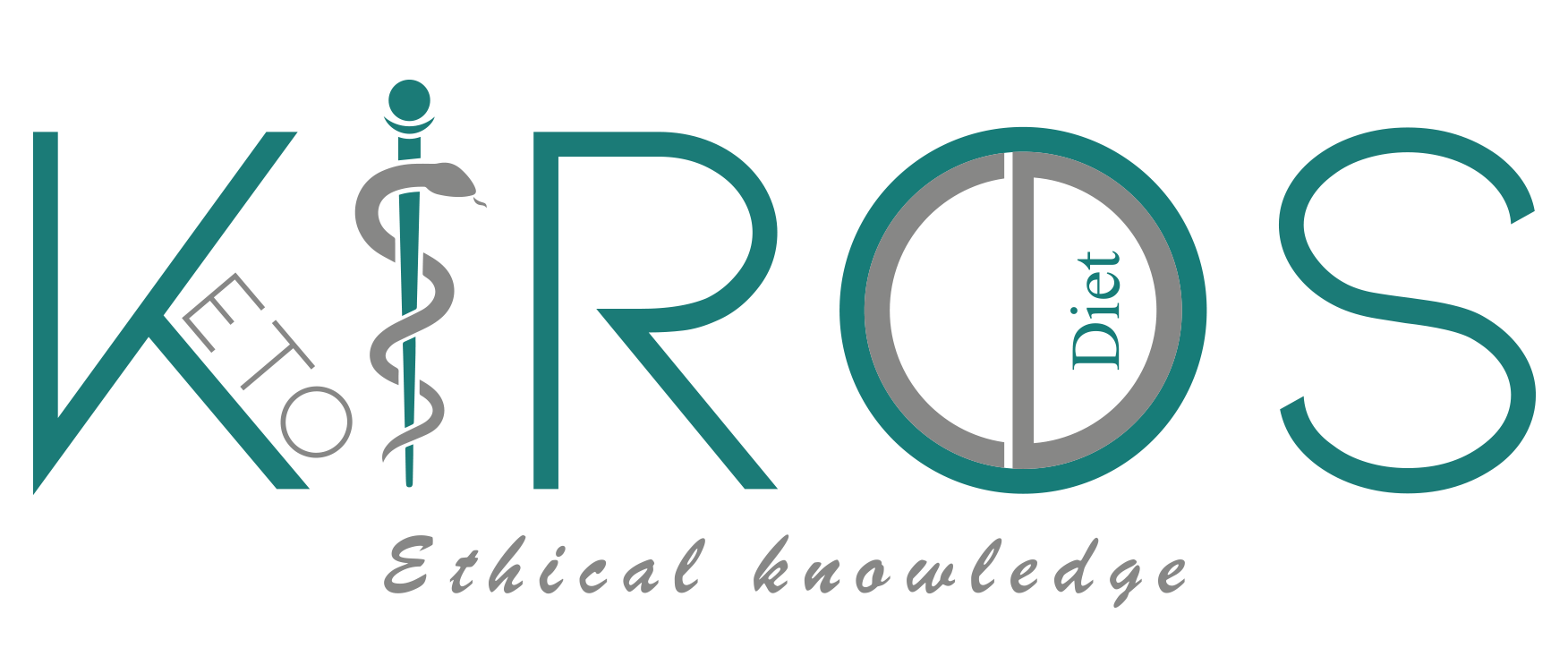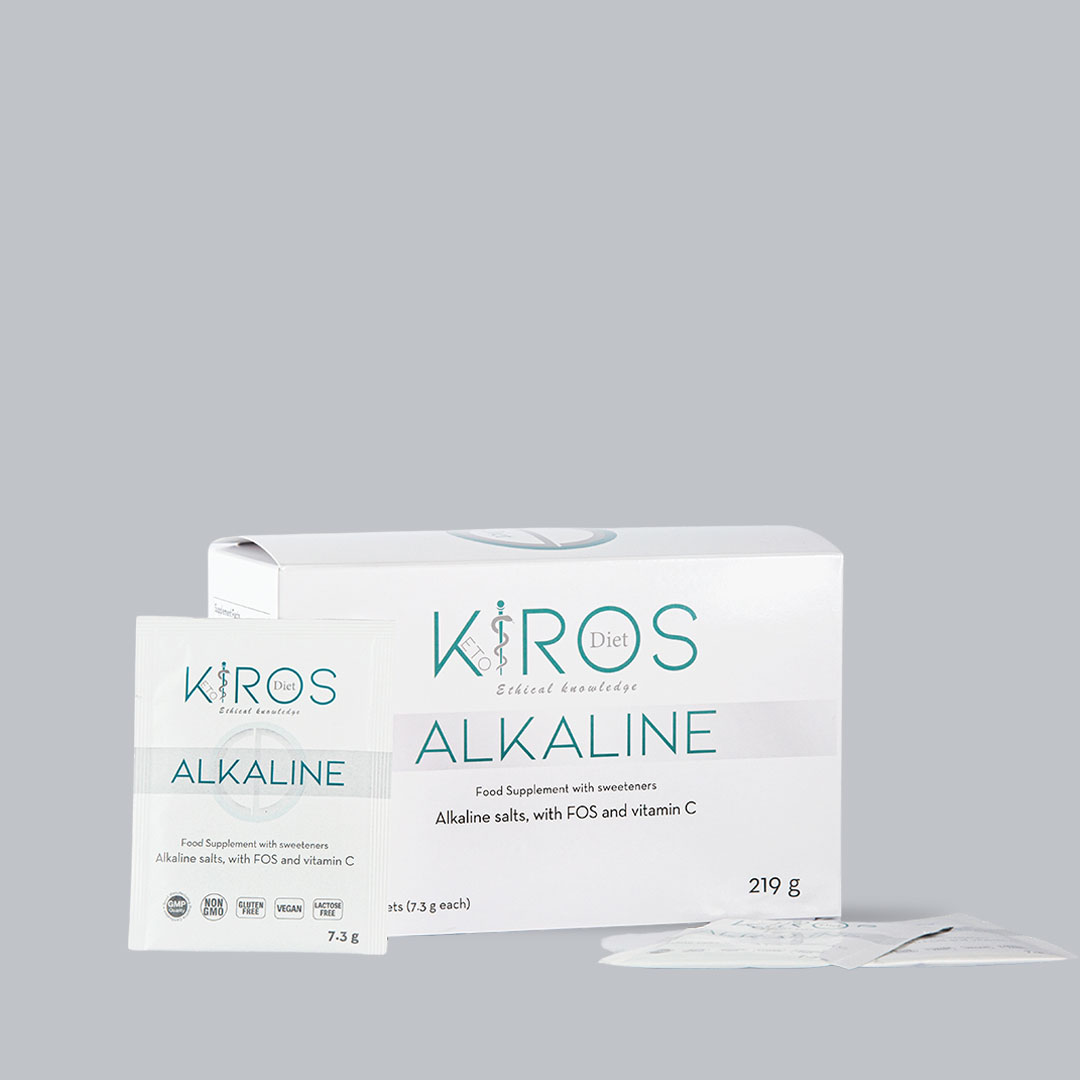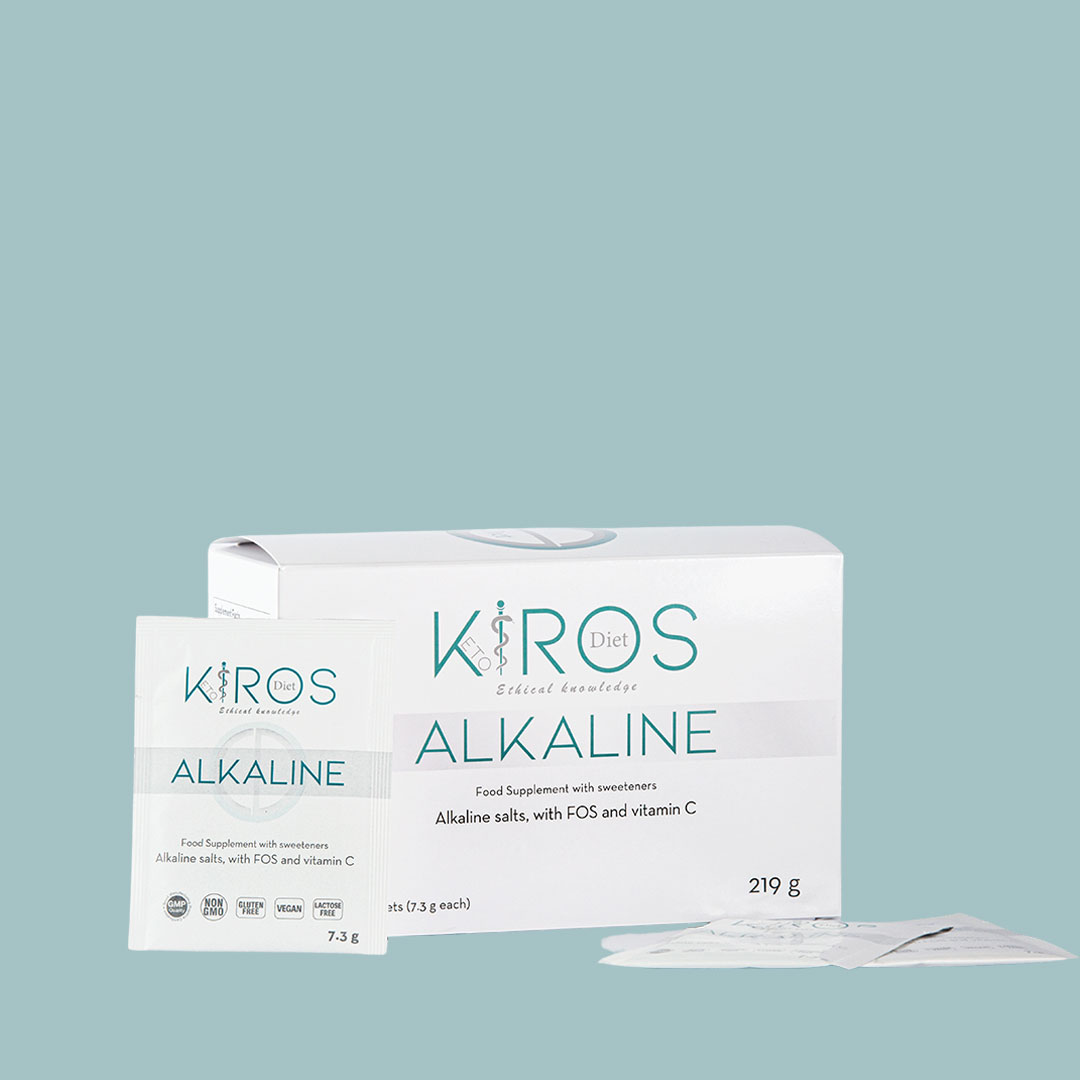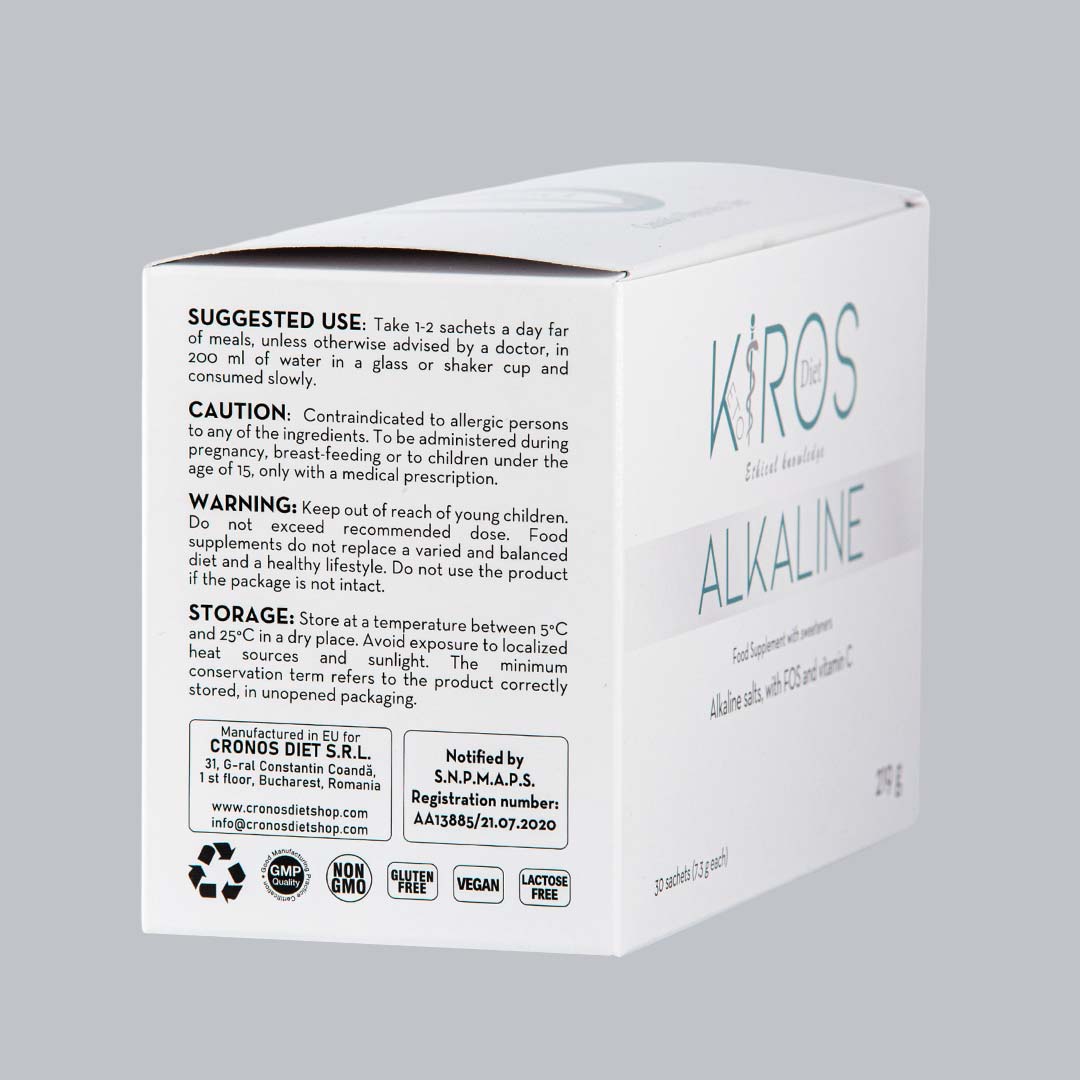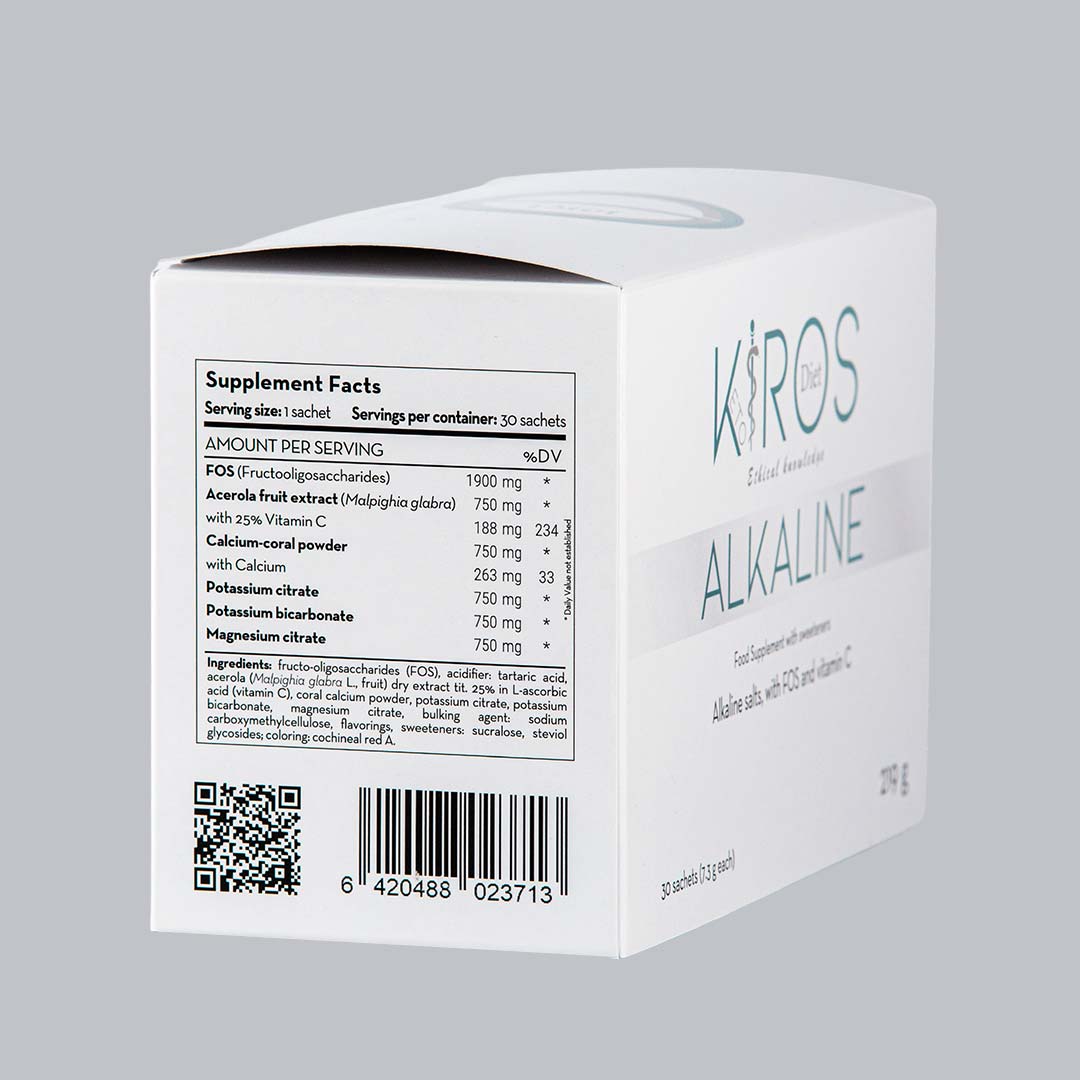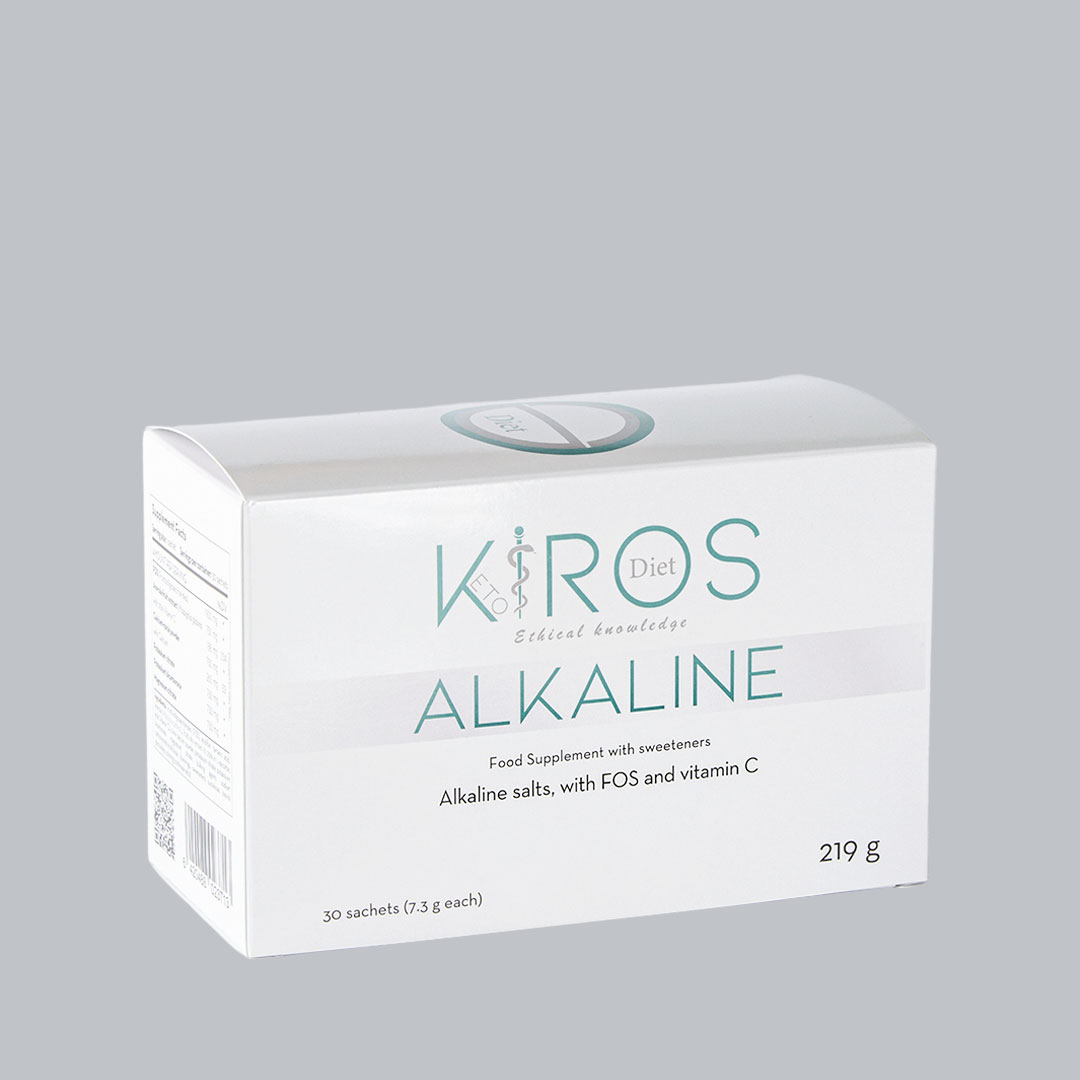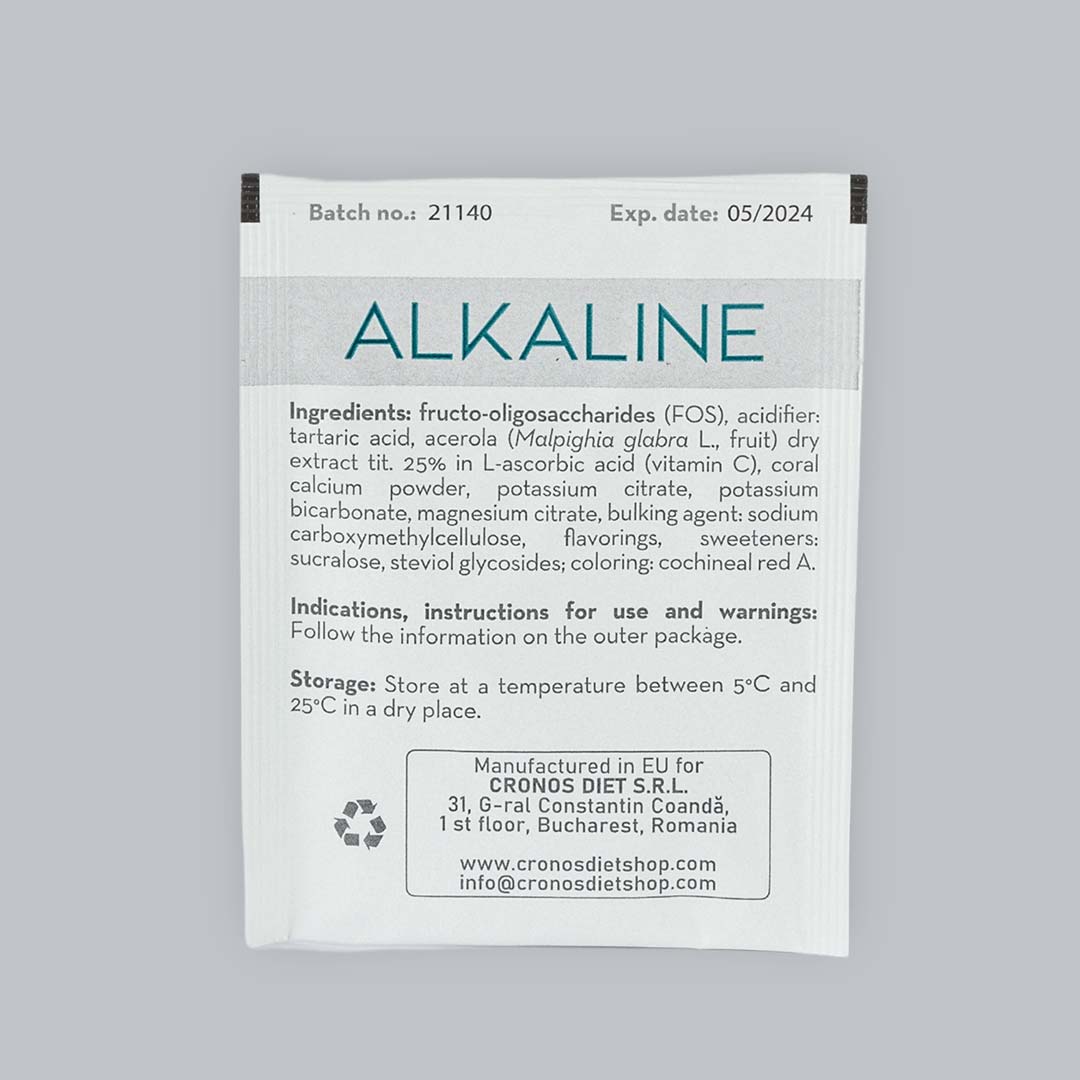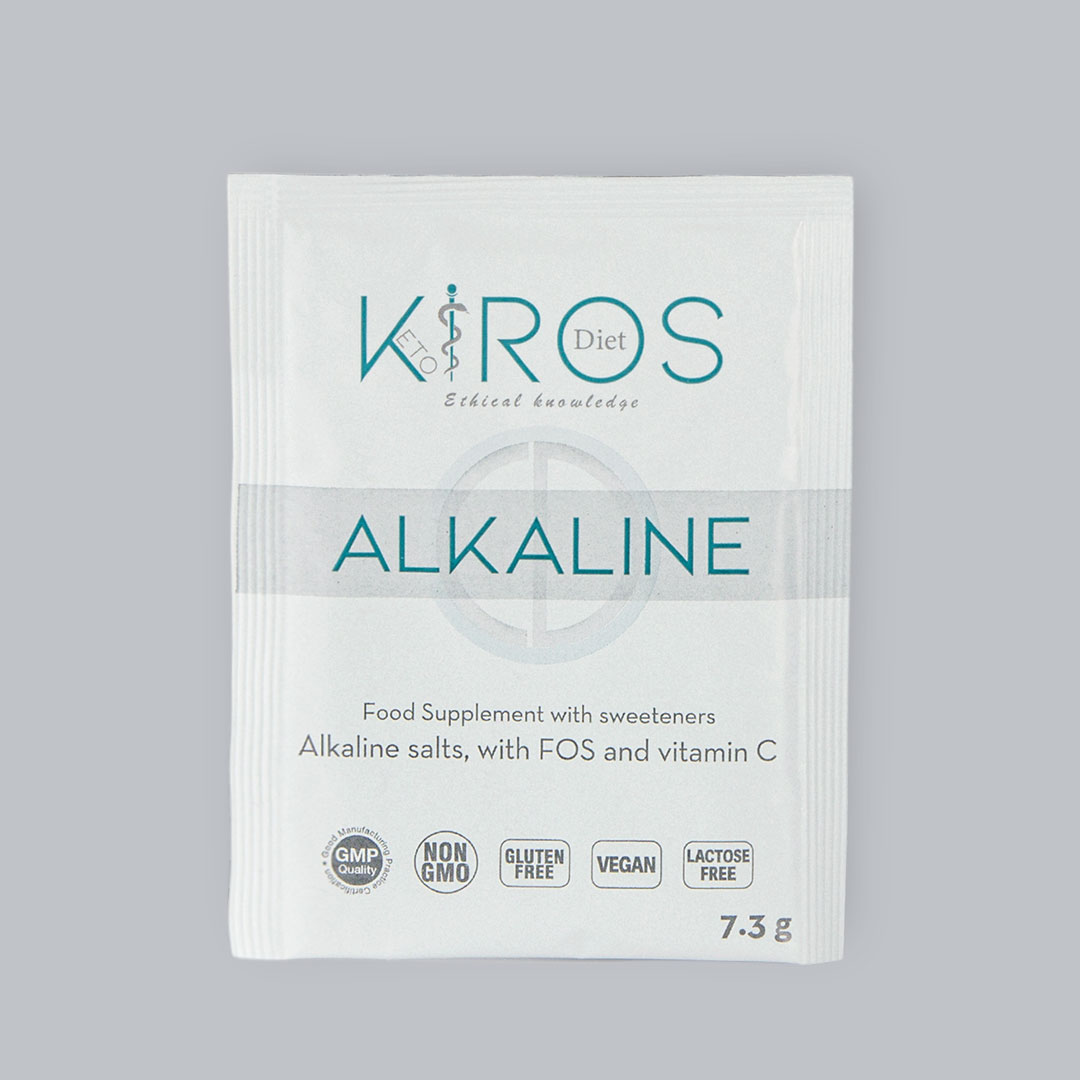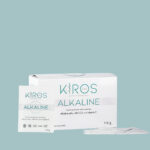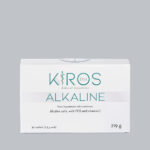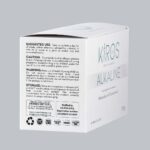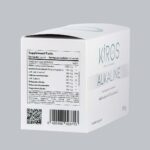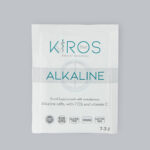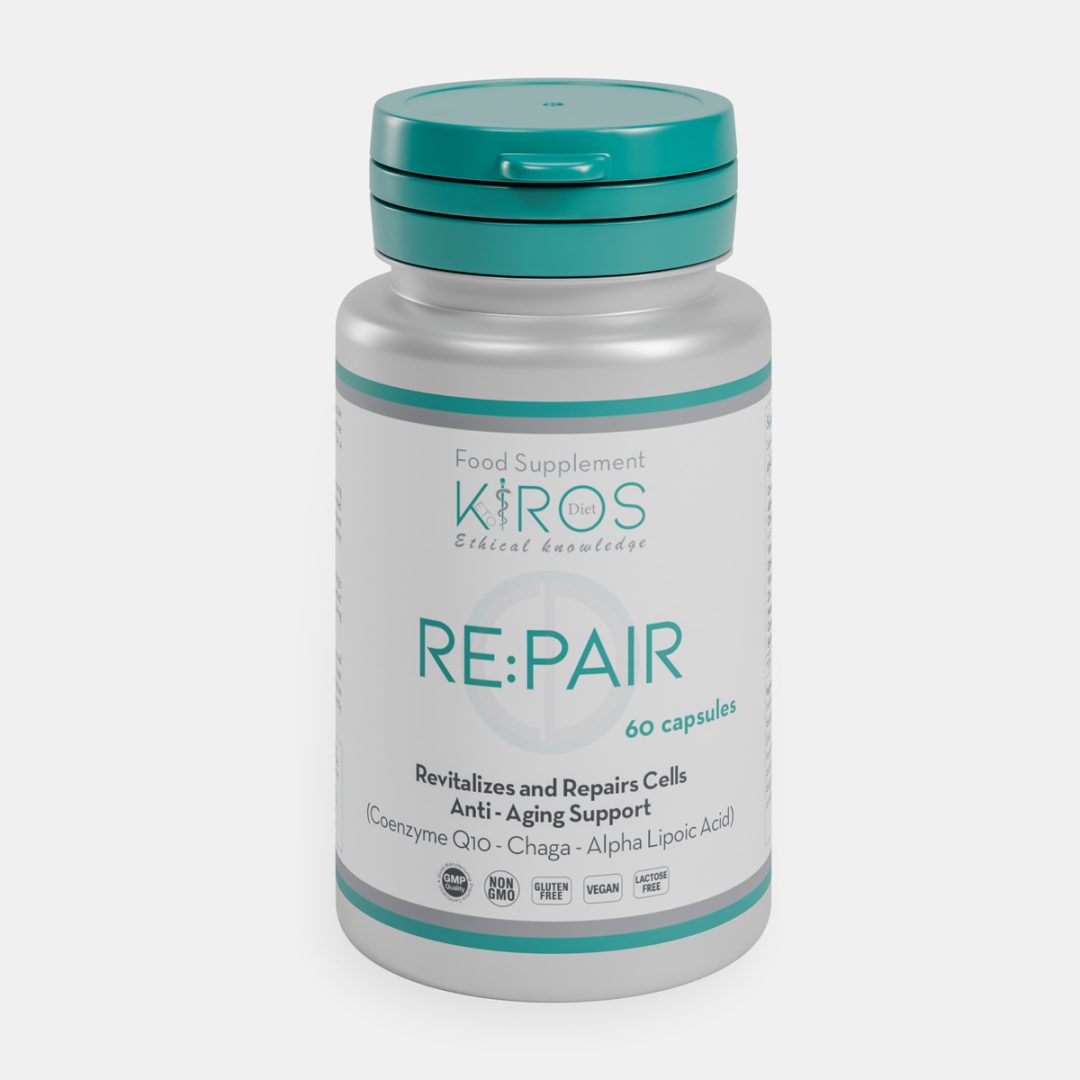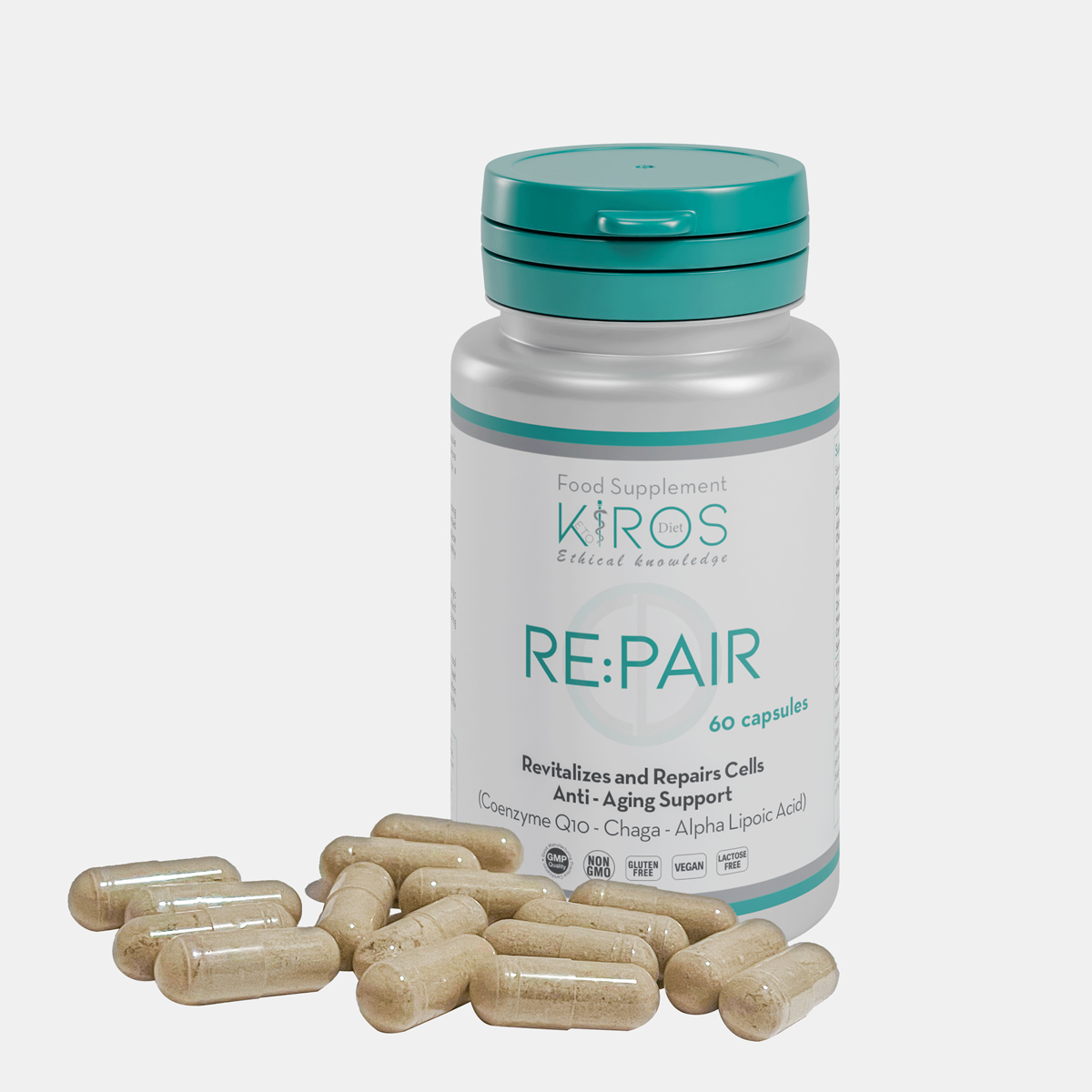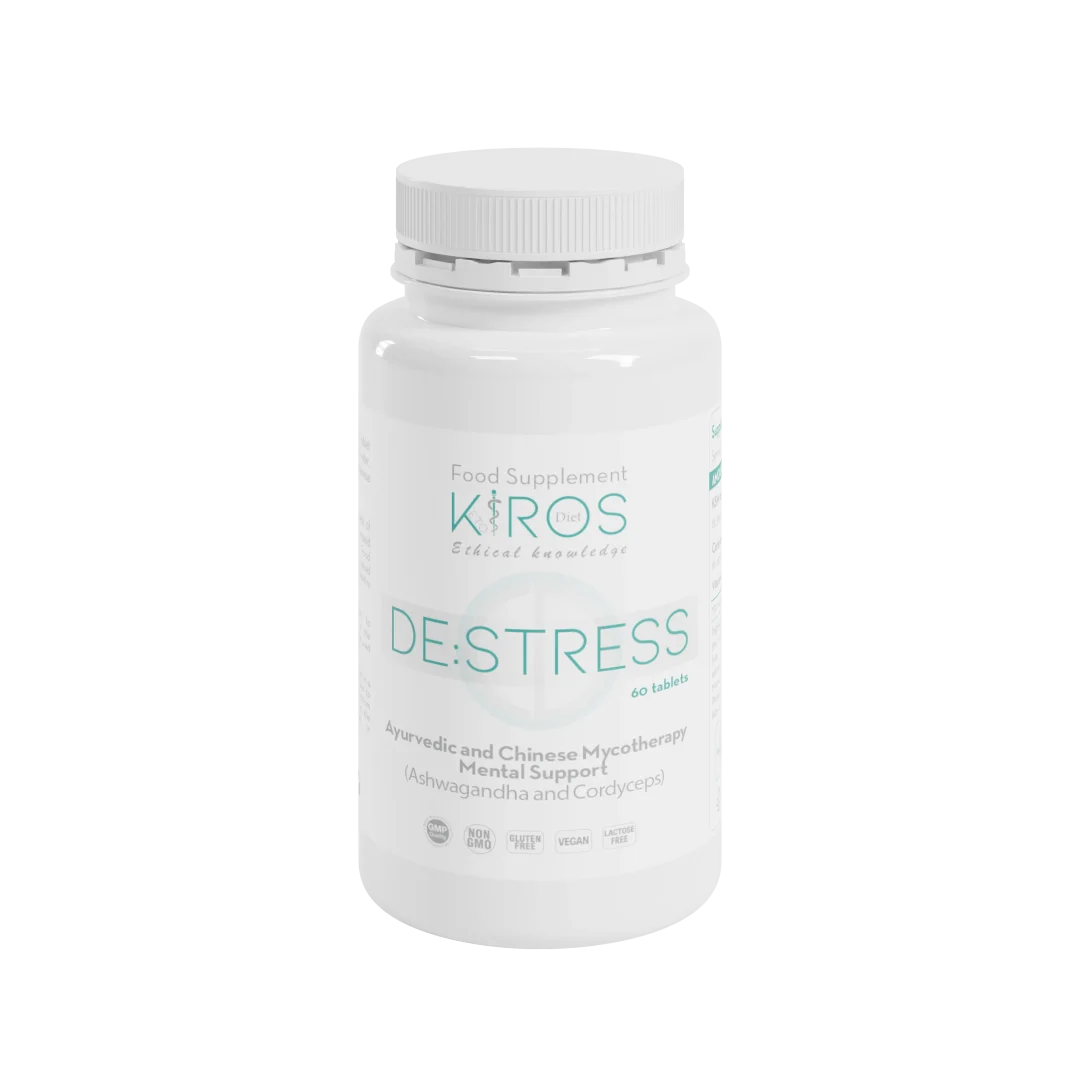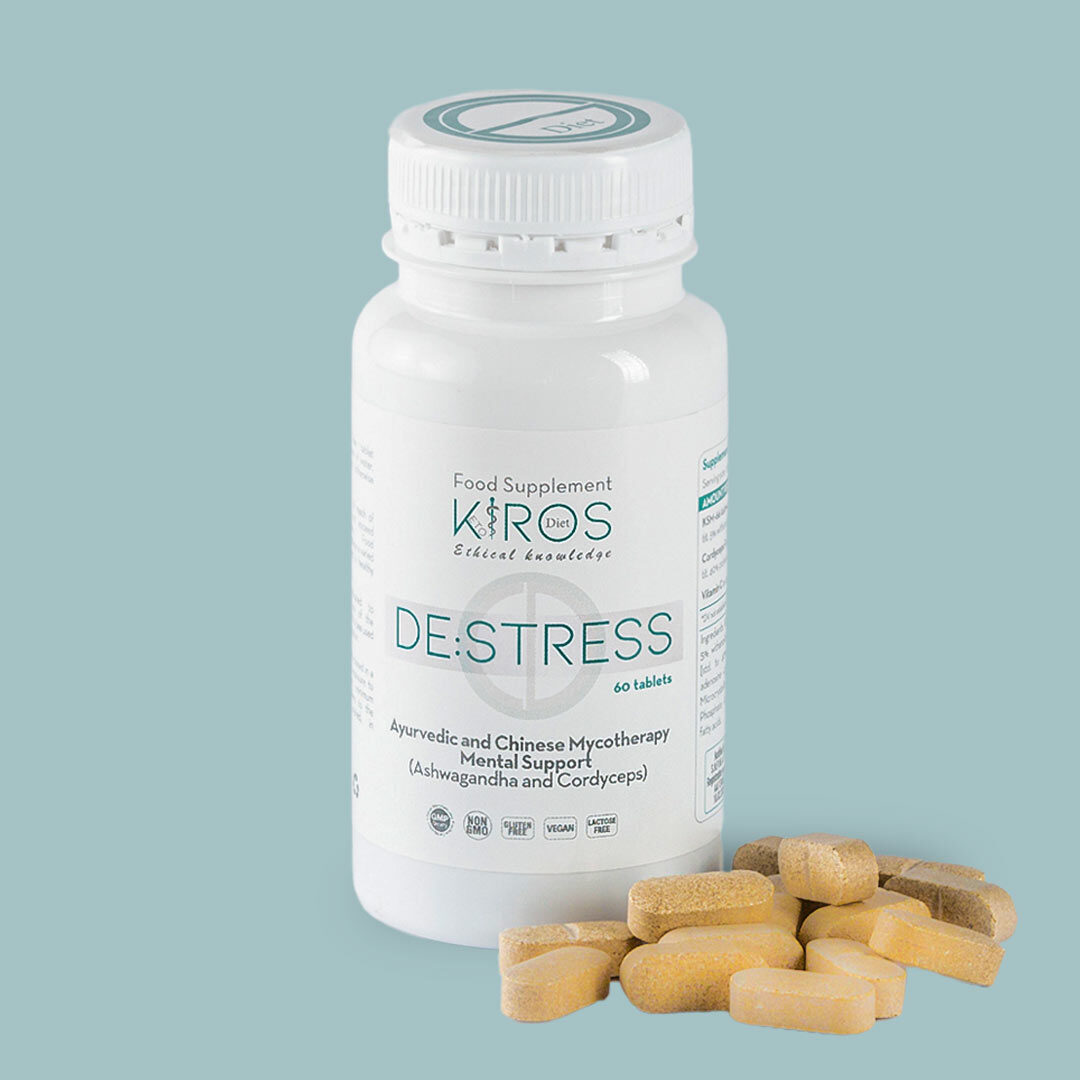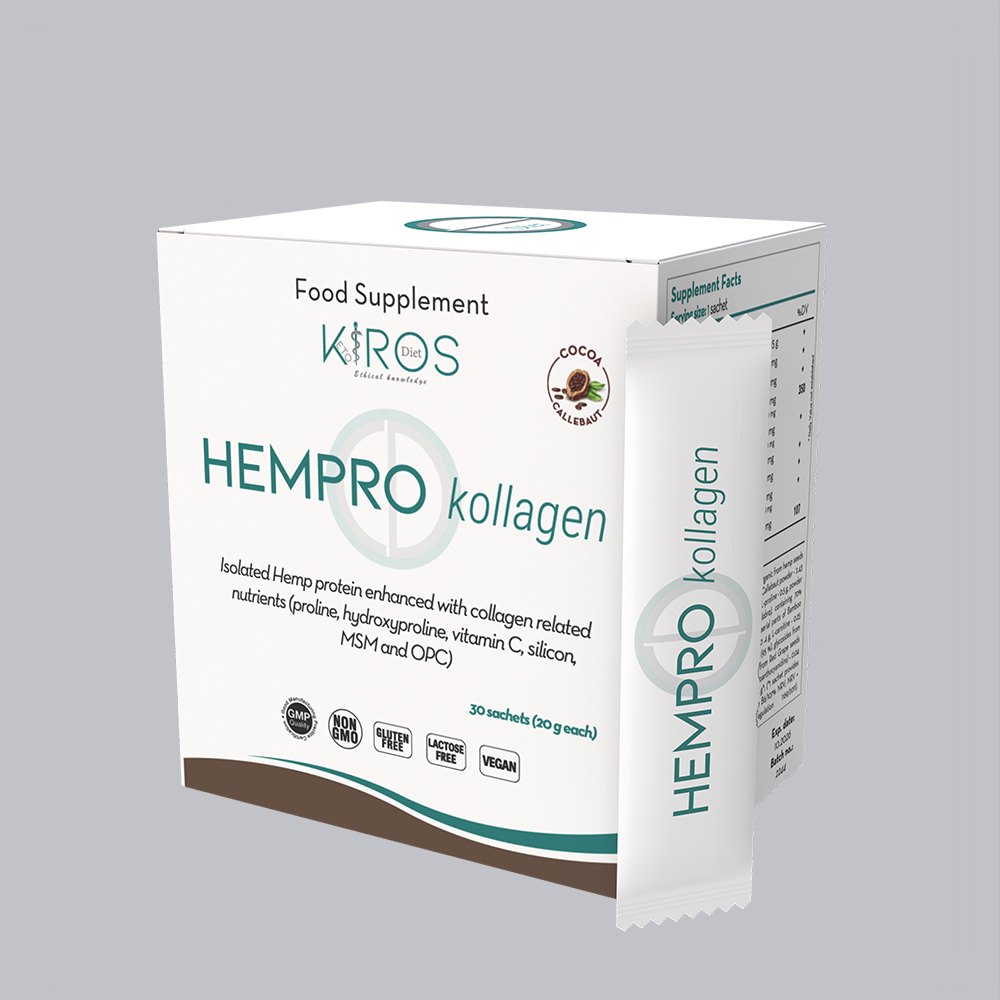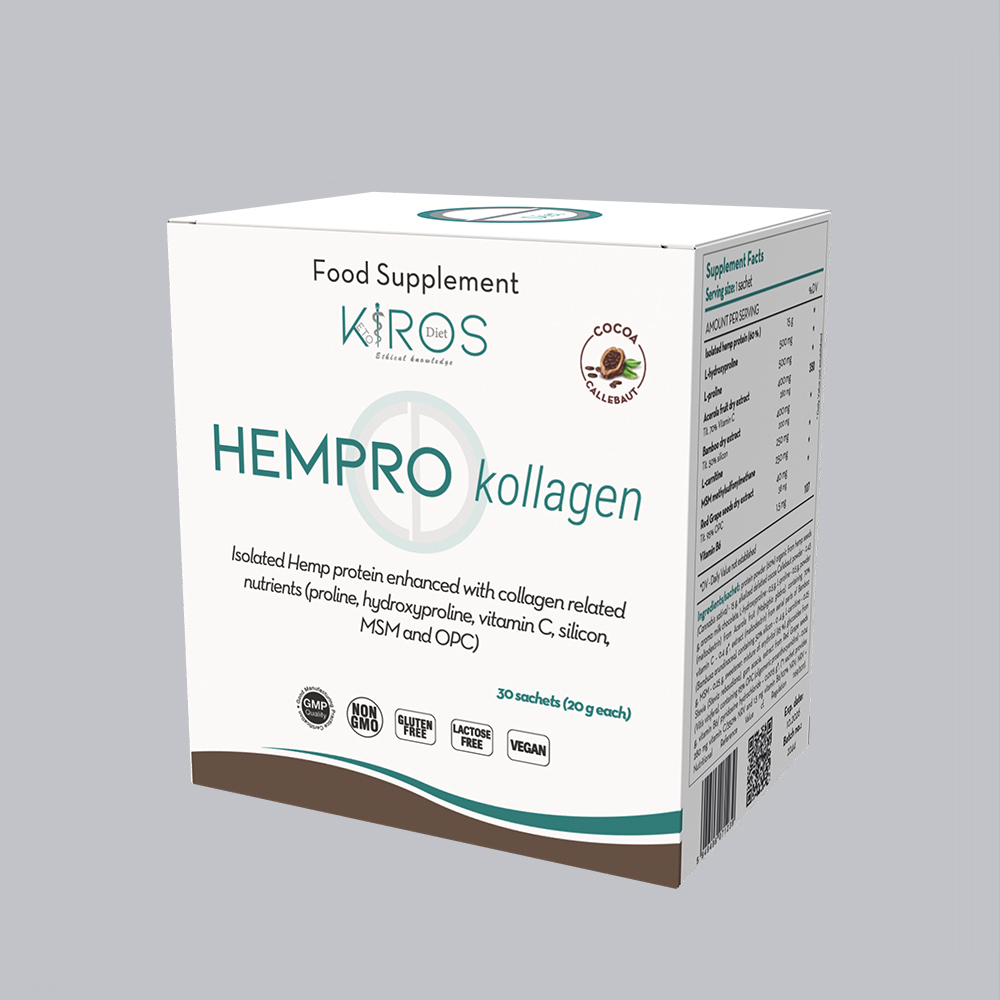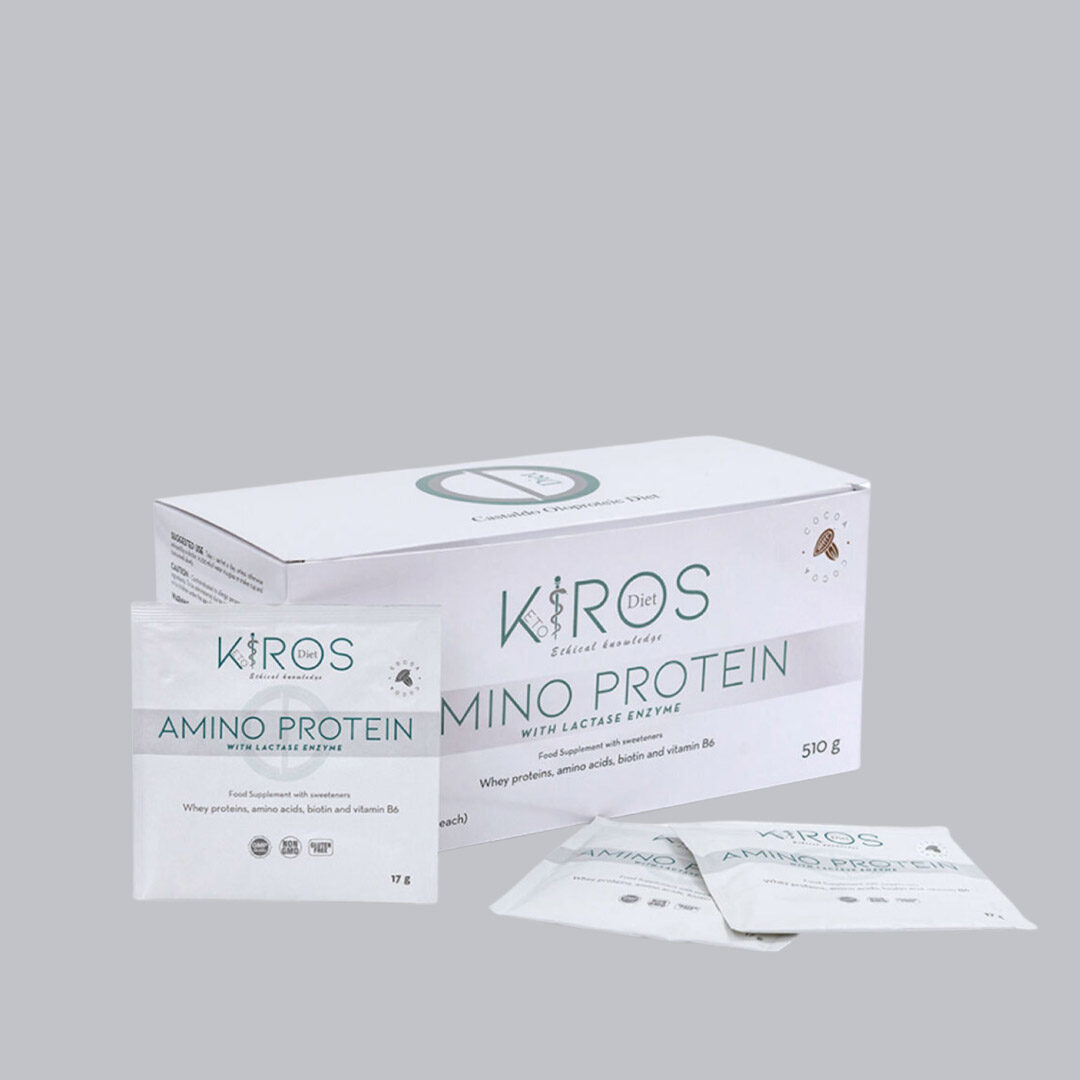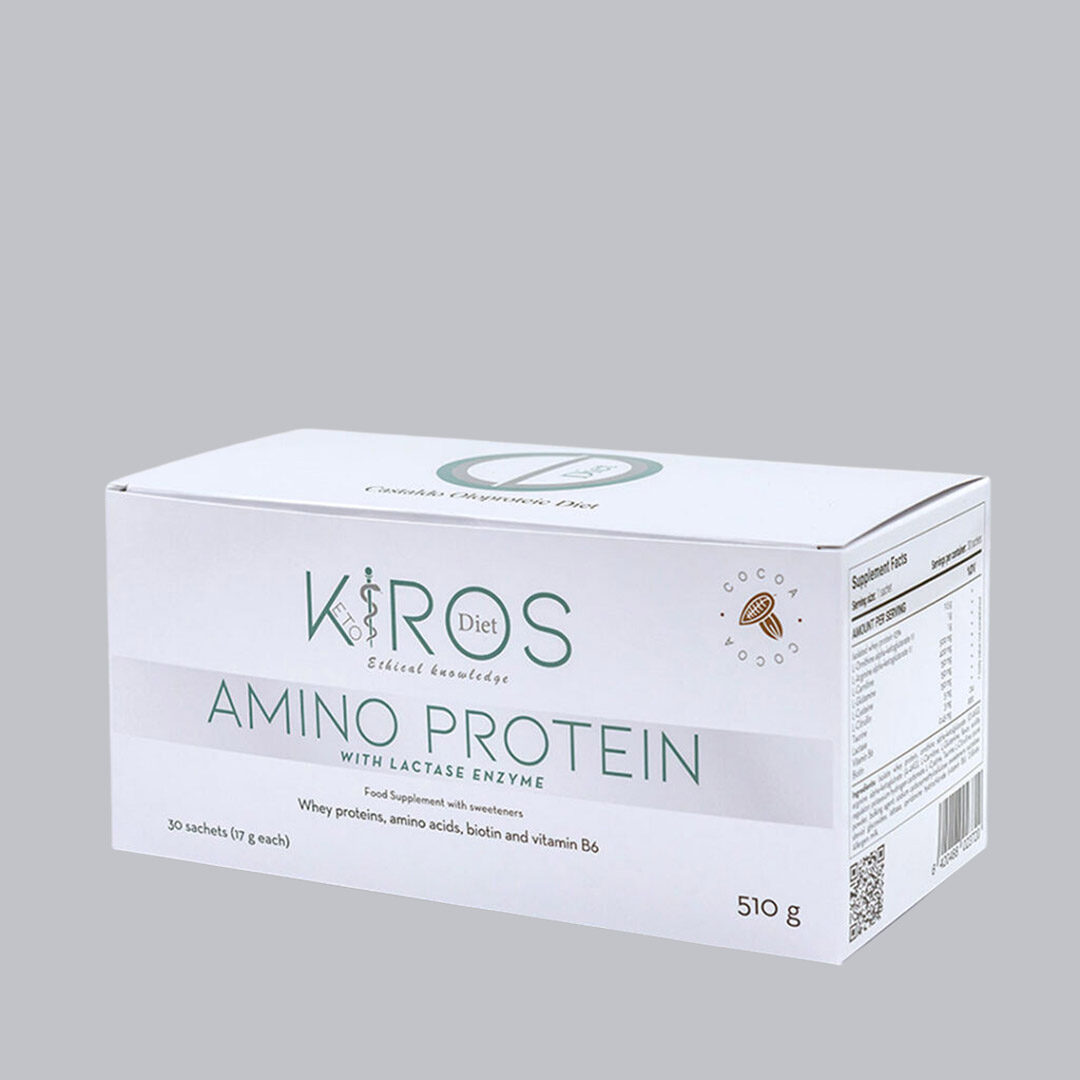EFFECTIVENESS
Alkaline. It is a dietary supplement formulated on the basis of natural principles that act in a synergistic way to provide the body with nutritional elements favorable to the maintenance of the mineral reserve. It has alkalizing, anti-inflammatory, antioxidant and remineralizing properties.
Alkaline improves the reserves of buffering substances present in the body and mitigates the effects of acid diet by maintaining a constant blood pH. It contains in balanced proportions: alkalizing salts, natural vitamin C from Acerola fruits with antioxidant activity and FOS able to act as prebiotics to protect the intestinal flora. In the aesthetic field it helps to slow down the aging process. In sports medicine useful in the prevention of injuries due to metabolic acidosis and increased production of lactic acid.
A sachet of Alkaline is able to provide about 1.9 g of fructooligosaccharides (FOS), 750 mg of acerola (rich in vitamin C) and 3.5 g of a particularly balanced mixture of alkaline substances including potassium citrate, potassium bicarbonate, calcium carbonate, magnesium citrate.
BACKGROUND
In recent years, eating habits and behaviors have largely changed, and alongside a highly sedentary lifestyle there is a diet based on a disproportionate consumption of simple and refined sugars. In an incorrect lifestyle, based on diets poor in nutrients or and rich in acidifying substances1, insufficient exercise, excessive training (especially too much cardio, which contributes to stress), chronic stress, our body becomes potentially more acid and to combat or buffer this acidity uses minerals such as potassium, sodium, magnesium and calcium by removing them from the organs and bones. In particular, calcium deficiency predisposes to various diseases such as: osteoporosis, kidney stones, cancer, hypertension, obesity and insulin resistance2,3.
CHARACTERISTICS OF THE COMPONENTS
Magnesium Citrate is nutritionally essential mineral with highly bioavailable magnesium. It helps increase magnesium intake levels and promotes protein synthesis and bones and teeth health, supports muscle function and has antacid properties. In aesthetics, magnesium helps slow down the aging process, boosting cellular metabolism and detoxifying the epidermis. Magnesium increases the ability of our cells to fight free radical attacks and prevent wrinkles. It also prevents inflammation, increases the level of fatty acids, responsible for maintaining elasticity and retaining moisture in the skin.
Potassium Citrate is a colorless, odorless, slightly basic salt substance. Potassium helps cells, blood pressure, muscles and nerves function properly. It is rapidly absorbed when administered orally and is excreted in the urine. Also useful as an alkalizing agent in the treatment of mild urinary tract infections such as cystitis. Studies show that potassium bicarbonate and potassium citrate supplements help dissolve some types of kidney stones.
Citrates. Western diets rich in animal protein cause a long-term acid load that, despite corresponding in the increase in net renal acid excretion, can induce a chronic state of acidemia. This effect also occurs during restrictive, ketogenic nutritional therapies. This can have deleterious effects on both kidney and bone, increasing the risk of calcium stones in the former and leading to chemical dissolution of alkaline mineral salts in the latter. While alkaline citrate supplementation has been shown to reduce stone recurrences, its effects on bone turnover have received less attention. A recent study has shown that supplementation with an alkaline salt, such as potassium citrate, can reduce bone resorption thus counteracting potential adverse effects caused by chronic acidemia of protein-rich diets4.
Potassium Bicarbonate. Low levels of potassium in the blood can cause health problems. For this reason, potassium bicarbonate supplementation may be used with the goal of increasing blood potassium levels while avoiding hypokalemia. A diet low in fruits and vegetables and higher in grains and protein may contribute to the loss of calcium from bones and muscle mass, especially in people over 50 years of age. One study has shown in this regard that supplementation with potassium bicarbonate helps slow the loss of calcium and other nutrients5.
Calcium Carbonate is the carbonic salt of calcium. The body needs calcium to circulate blood, move muscles, and contribute to the normal function of digestive enzymes. Adequate dietary calcium intake along with a physically active lifestyle can improve the quality and perhaps quantity of life in the elderly population with a reduced risk of osteoporosis. According to data provided by the World Health Organization (WHO), the number of obese people worldwide has doubled since 1980: in 2018, more than 1.9 billion adults were overweight, including more than 800 million obese. The hypothesis of an inverse relationship between calcium intake and obesity (more specifically body weight, weight gain, and fat mass percentage) has been widely discussed, and several studies in recent years have associated dietary calcium intake deficiency with obesity and the resulting cardio-metabolic risk. Calcium can increase the amount of heat produced within the human body by acting directly on adipocytes, and therefore exert a lipolytic action capable of burning fat and decrease appetite. Among the mechanisms described in the pathophysiology of obesity and its co-morbidities great prominence is given today to the calcium-sensitive receptor (CaSR), a protein that regulates the balance of calcium in different organs and that recent research has increasingly related to obesity. Calcium is also found in the skin where it acts as a regulator of cell turnover and sebum production. Skin that has not stored enough calcium can appear fragile and thin due to the accumulation of dead cells and poor regulation of cellular production and dry due to lack of sebum.
Acerola (Malpighia punicifolia L.) is a plant native to Central America that has spread to South America, including Brazil, due to its good adaptation to soil and climate. It is nutritionally important because of its very high level of vitamin C.
For the first time a preparation based on this combination of herbs and active ingredients is proposed and marketed
STUDIES
During a highly hypocaloric diet, metabolic acidosis with typical fasting crises such as nausea, vomiting, headache, muscle pain, dizziness and apathy almost always occurs in the first days. This symptomatology is ameliorated by the contribution of alkaline minerals. The intake of alkalizing minerals is a significant aid to the safety of restrictive dietary regimes and ketogenic nutritional therapies.
USEFUL FOR
Useful and recommended for :
- low-calorie diets
- ketogenic diet
- sedentary lifestyle
- sports medicine, in the prevention of injuries and excessive training6
- prevention of osteoporosis7
- improving the symptoms of patients suffering from chronic fatigue
- dermatological diseases
LITERATURE
- Schwalfenberg, G. K. (2012). The alkaline diet: is there evidence that an alkaline pH diet benefits health?. Journal of environmental and public health, 2012.
- Buclin, T., Cosma, M., Appenzeller, M., Jacquet, A. F., Decosterd, L. A., Biollaz, J., & Burckhardt, P. (2001). Diet acids and alkalis influence calcium retention in bone. Osteoporosis International, 12(6), 493-499.
- Avenell, A., Bolland, M. J., Grey, A., & Reid, I. R. (2017). Further major uncorrected errors in National Osteoporosis Foundation meta-analyses of calcium and vitamin D supplementation in fracture prevention. Osteoporosis International, 28(2), 733-734.
- Marangella, M., Di Stefano, M., Casalis, S., Berutti, S., D’Amelio, P., & Isaia, G. C. (2004). Effects of potassium citrate supplementation on bone metabolism. Calcified tissue international, 74(4), 330-335.
- Dawson-Hughes, B., Harris, S. S., Palermo, N. J., Castaneda-Sceppa, C., Rasmussen, H. M., & Dallal, G. E. (2009). Treatment with potassium bicarbonate lowers calcium excretion and bone resorption in older men and women. The Journal of Clinical Endocrinology & Metabolism, 94(1), 96-102.
- Bishop, D. (2010). Dietary supplements and team-sport performance. Sports medicine, 40(12), 995-1017.
- Tucker, K. L., Hannan, M. T., & Kiel, D. P. (2001). The acid-base hypothesis: diet and bone in the Framingham Osteoporosis Study. European journal of nutrition, 40(5), 231-237.
